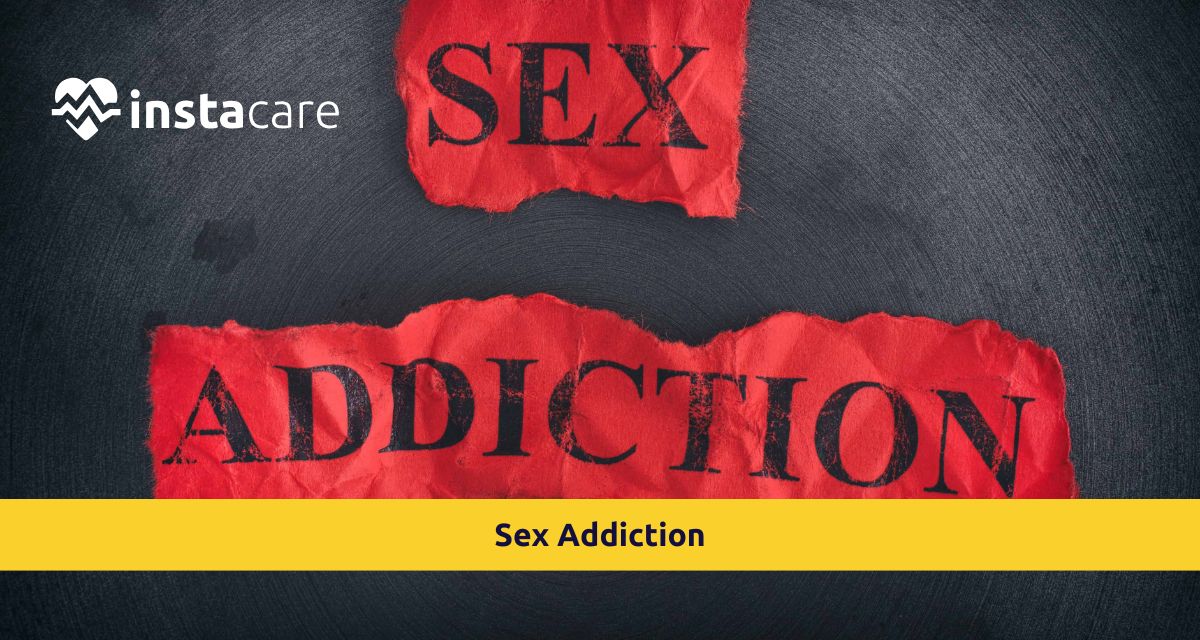What Is Sex Addiction?
Signs of Sex Addiction
- Constantly preoccupied with sexual thoughts or fantasies.
- Taking up risky sexual behaviors despite any possible consequences.
- Using sex to relieve stress or emotional distress.
- Guilt or shame experienced following sexual activity.
- Efforts to limit or control sexual behavior have failed.
- Spending a lot of time engaged in sexual activities at the cost of daily duties.
- Seeking multiple partners or anonymous sexual encounters.
Causes of Sex Addiction
- Psychological Factors: These arise from other underlying mental health disorders such as anxiety or depression.
- Neurological Factors: These refer to the variations in the brain's chemistry concerning impulse control.
- Trauma: History of either sexual abuse or emotional neglect.
- Environmental Influences: Such can be exposure to either hypersexual material or friends.
- Genetics: Some suggest that it runs through families; hence, there is a possible genetic component related to compulsive behaviors.
Sex Addiction Diagnosis
- Psychological evaluation;
- Patterns of sexual behavior observed;
- Impact on personal life versus social life;
- Medical history and co-occurring conditions
Treatments for Sex Addiction
- Therapeutic intervention: Cognitive Behavioral Therapy focuses on identifying and modifying compulsive behavior.
- Medication: Some medicines help regulate impulse control and promote recovery from co-occurring psychiatric disorders.
- Support groups: Sex Addicts Anonymous is one example of a support group that incorporates peer support into its system.
- Behavior-altering techniques: These involve learning new methods of coping with a situation as a replacement for compulsive sexual behaviors
- Mindfulness meditation: These promote impulse control and emotional regulation.
Sex Addiction and Its Impact On Physical & Mental Health
Sex Addiction and Healthy Libido
- Control: Those who have healthy libido can regulate their desires, but those with sex addiction can't do so.
- Impacts upon Life: A healthy libido doesn't mean disturbance in work and daily responsibilities, while sex addiction does.
- Emotional Effects: Sex addictions usually manifest the emotions of guilt, shame, or anxiety in normal libido; they are less likely to happen.
- Compulsiveness: A healthy sex drive is rooted in desire. Sex addiction is rooted in compulsion and dependency.
Sex Addictions and Mental Health
- Anxiety and Depression.
- Obsessive-Compulsive Traits.
- Addictions and/or Chemical Dependency Disorders.
- Low Self-Esteem and Shame.
Sex Addictions and Brain Chemistry
Sex Addiction and Trauma
How to Be Free From Sex Addiction?
- Consider psychotherapy and professional assistance.
- Recognize and avoid triggers.
- Engage in positive coping such as sports and mindfulness.
- Develop a support system from family and friends.
- Learn self-discipline and accountability.
- Train in practicing higher delay gratification and impulse control.
Self-Help Techniques for Sex Addiction
- Journaling: Tracking triggers and patterns.
- Mindfulness Practice: Calming impulses.
- Setting Boundaries: Staying away from situations that encourage unhealthy behaviors.
- Hobbies: Taking sexual urges out of focus.
- An Organized Daily Routine: Scheduling time to avoid free hours.
View More: Are You Practicing Safe Sex? Tips, Benefits, & More
Ways to Help Someone with Sex Addictions
- Encourage Professional Help: Look for Sex Addiction Therapy or support groups.
- Establish Boundaries: Clearly state the behaviors that are to be avoided.
- Emotional Support: Let her understand but not enable.
- Educate Yourself: Read and learn more about the condition so that you can support him informally.
- Seek Therapy for Yourself: If the addict is affecting you.
Sex Addiction and Its Effects on Relationships
- Distrust: Though usually characterized by secrecy and infidelity, sex addiction is no exception.
- Emotional Congruence: When sex takes the main stage, there is little attention left for emotional intimacy.
- Conflict and Destruction: Betrayal and breached communication run rampant among partners.
- Financial Impairment: Sex addictions often incur large amounts of spending.
- Neglect of Responsibilities: Priorities are given to compulsive behaviors over family or work obligations.
Conclusion

